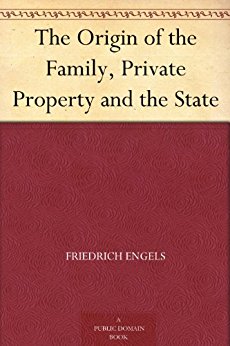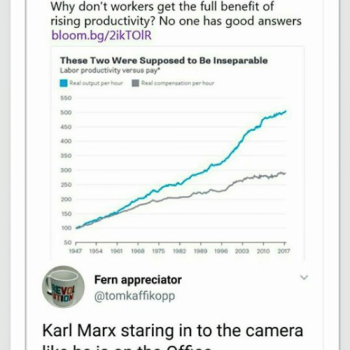Recently, my friend and fellow Patheos blogger Chuck McKnight has been publishing a series of blog posts regarding polyamory. Chuck and his wife are polyamorous themselves, and as you might expect, he has taken some heat for daring to start this conversation. The Gospel Coalition took aim at him, as well as another poly friend of mine, warning that polyamory is “but the next movement to find an accepting audience among professing Christians already willing to justify any consensual sexual relationship with revisionist readings of Christian history and theology.”
The first major issue is that C. Daniel Motley, the writer behind the piece linked above, appeals to “a proper understanding of Christian sexual ethics.” I assume he means The Gospel Coalition’s understanding of Christian sexual ethics. Unfortunately, like most evangelicals, Motley writes from the automatic assumption that his theological views are correct even though they they lack any type of historical-critical analysis.
Chuck McKnight and Jeff Hood have made some very creative exegetical arguments for Christian polyamory. The fear of people like Motley is that their interpretation is every bit as valid as The Gospel Coalition’s (perhaps even more), because both rely on very personal interpretations of scripture and experiences of the divine.
And as okay with that as I am, I’m going to do something a bit different here; instead of defending polyamory, I’m going to attack monogamy.
Monogamy may be part and parcel of orthodox Christian belief, but a firm materialist understanding of the Kingdom of God (Jesus’s program for a new world free from oppression) calls into serious question whether the concept of monogamy is really of Christ. First we must understand how monogamy came to be.
It may shock you, but the earliest humans were not monogamous. Anyone holding to a Young-Earth Creationist viewpoint of the origin of the world will be unconvinced, but for the rational among us, the development of the human family offers clues as to where we’ve been and where we’re going.

So we turn, naturally, to the seminal text on the subject, The Origin of the Family, Private Property, and the State by Friedrich Engels. Engels writes of tribal societies in North America, Hawaii, India, and Australia:
“Here we find ourselves among forms of family which directly contradict those hitherto generally assumed to be alone valid. The traditional view recognizes only monogamy, with, in addition, polygamy on the part of individual men, and at the very most polyandry on the part of individual women; being the view of moralizing philistines, it conceals the fact that in practice these barriers raised by official society are quietly and calmly ignored. The study of primitive history, however, reveals conditions where the men live in polygamy and their wives in polyandry at the same time, and their common children are therefore considered common to them all – and these conditions in their turn undergo a long series of changes before they finally end in monogamy. The trend of these changes is to narrow more and more the circle of people comprised within the common bond of marriage, which was originally very wide, until at last it includes only the single pair, the dominant form of marriage today.”
In fact, our closest living relatives, chimpanzees and bonobos (as well as other primates) practice polyamory. So the important question to ask is, why did humans develop the way we did?
Early human societies (very early) had a system of family relations which Engels terms the “Consanguine Family.” In this type of arrangement, marriage groups are separated by generations: brothers may mate with sisters, and cousins with each other, but never a parent and child or grandparent and grandchild. Additionally, the “children” are the children of all members of their biological parents’ generation, and the parents are the parents of all of the children of their biological child’s generation.
Although this type of family structure is extinct, evidence of it was seen in the marriage customs of the native Hawaiians, as well as the fact that incest is still practiced in every human culture and society in the world despite heavy moral and ethical taboos around it.
The next stage of the development of the family was the restriction of breeding between siblings (born of the same mother; human society is still matrilineal at this point). This allowed groups to expand and evolve (culturally) faster and formed what Engels and other anthropologists of his time would call the gens, an extended family unit related by a common female ancestor (other anthropologists have used that term differently, but in the works of Engels and his predecessor, Morgan, it is used this way).
With the gens we have the first truly exogamous society as well as a major step towards what Engels and other 19th-century anthropologists called “civilization.” But we are not yet at monogamy; these societies still practice forms of group marriage and at the most two individuals will enter into temporary pairing families. Examples of these types of societies were many of the Native American tribes before European contact. This shocked the Christian European settler-colonists, who used it to justify the brutal mistreatment of America’s indigenous peoples.
It is not until the upper stages of what Engels (and others) called “barbarism” (a term which has since come to have many negative connotations and is no longer used in anthropology) that monogamy arises. Monogamy:
“…is based on the supremacy of the man, the express purpose being to produce children of undisputed paternity; such paternity is demanded because these children are later to come into their father’s property as his natural heirs. It is distinguished from pairing marriage by the much greater strength of the marriage tie, which can no longer be dissolved at either partner’s wish. As a rule, it is now only the man who can dissolve it, and put away his wife.”
Monogamy arises late in the development of human society, alongside the concept of private property. It is intrinsically patriarchal, as it is the only way for humans without the benefits of DNA testing to prove paternity. But it is not in our nature, and it was not an original part of Creation.
What does that mean for Christians today?
Jesus came to usher in The Kingdom of God. While that term has become loaded in the two thousand years since Jesus’s execution, what it originally meant was the end of the current era and the beginning of a new epoch in human history. Jesus conceptualized it as a world totally free of hierarchy, which is why he opposed the “traditional family” born out of private property and patriarchy. It was a world of perfect justice, free from all forms of oppression and exploitation.
Monogamous marriage secured by property is a bourgeoisie institution that fosters patriarchy and hierarchy and is thus incompatible with the Kingdom of God. Since Christians are called to live the Kingdom, not just preach it, it is clear that the patriarchal monogamous family must be opposed. In this spirit, polyamory may be an attractive alternative for people who have never felt comfortable with marriage in our society.
The reason for that discomfort is that under capitalism, monogamy is often lacking in individual choice and mutual consent. How many people marry, or stay in bad marriages, for economic reasons or social pressures? How much of the spike in divorce rates in the past several decades is attributable to the fact that women are no longer as financially shackled to men as they have been in the past? Engels rightly points out that true monogamy has never existed; it has always been “[dogged by] hetaerism and prostitution.”
Polyamory is of God because unlike monogamy, it is a truly free expression of love. Three or more individuals cannot secure a polyamorous relationship with property; they do not enter into these relationships for economic reasons.

If C. Daniel Motley and The Gospel Coalition are truly concerned with safeguarding monogamy, I urge them to adopt the revolutionary Gospel of liberation from exploitation. For it is only after the abolition of private property and institution of a socialist economy that monogamy can exist free from the constrictions of economic coercion. I’ll give Engels the final word:
“…we can now conjecture about the way in which sexual relations will be ordered after the impending overthrow of capitalist production…what will there be new? That will be answered when a new generation has grown up: a generation of men who never in their lives have known what it is to buy a woman’s surrender with money or any other social instrument of power; a generation of women who have never known what it is to give themselves to a man from any other considerations than real love, or to refuse to give themselves to their lover from fear of the economic consequences. When these people are in the world, they will care precious little what anybody today thinks they ought to do; they will make their own practice and their corresponding public opinion about the practice of each individual – and that will be the end of it.”












